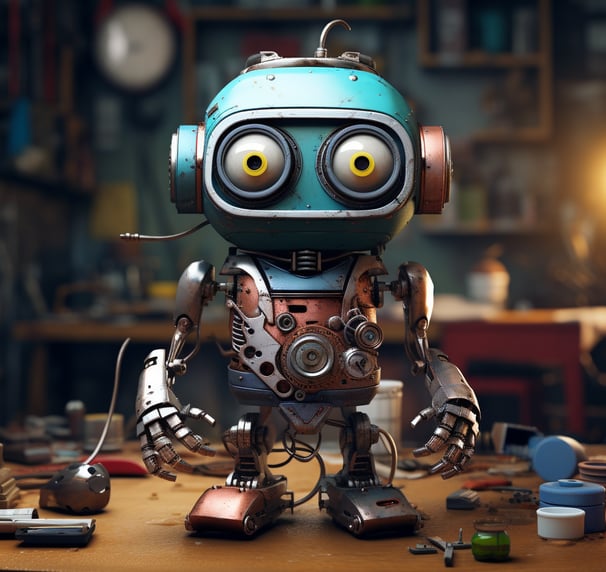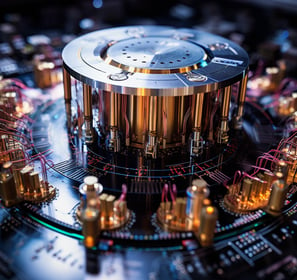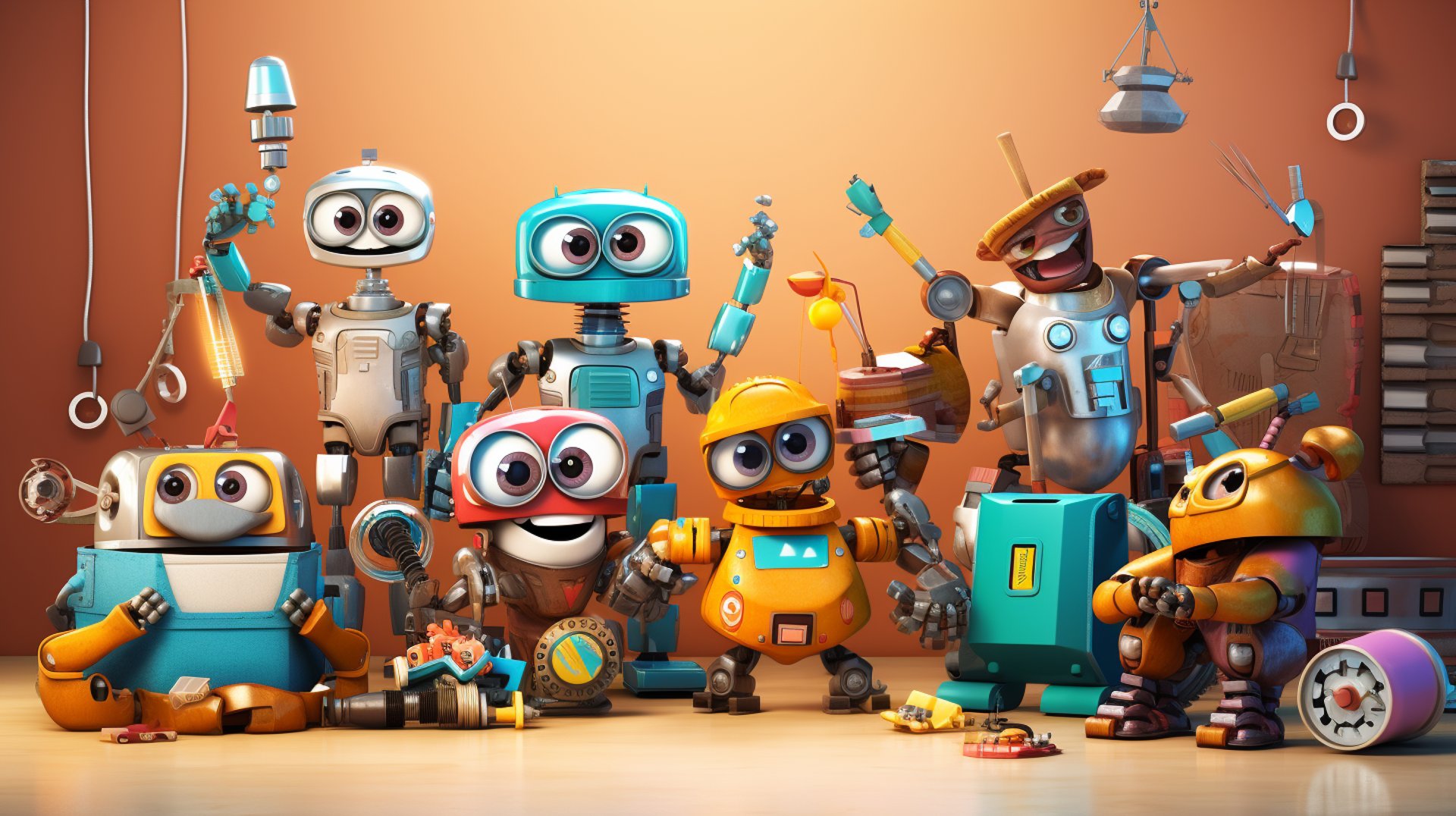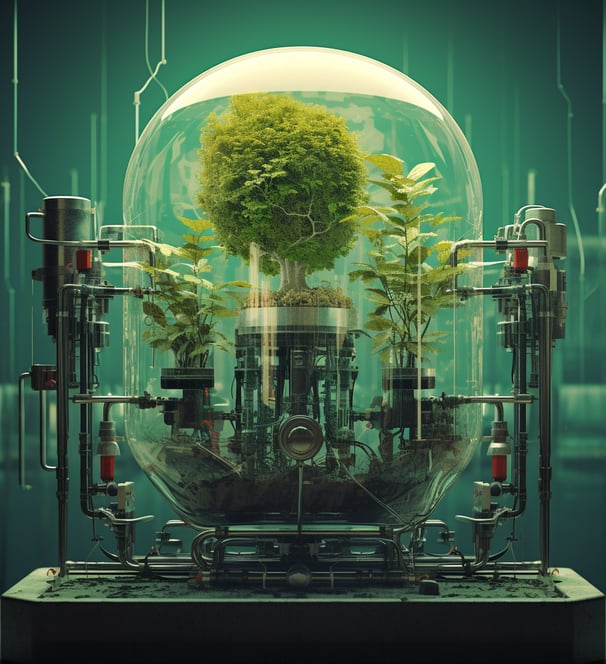

The Convergence of Biotechnology and IT: Shaping the Future of Healthcare and Beyond
In today's rapidly advancing world, technology is playing an increasingly pivotal role in shaping our lives, revolutionizing various industries, and addressing global challenges. Among the most transformative fields is biotechnology, which has emerged as a powerful tool for advancing healthcare, agriculture, environmental sustainability, and other critical sectors. As technology and biotechnology continue to converge, we are witnessing a paradigm shift, where the fusion of these disciplines is unlocking unprecedented possibilities and shaping the future of our world.
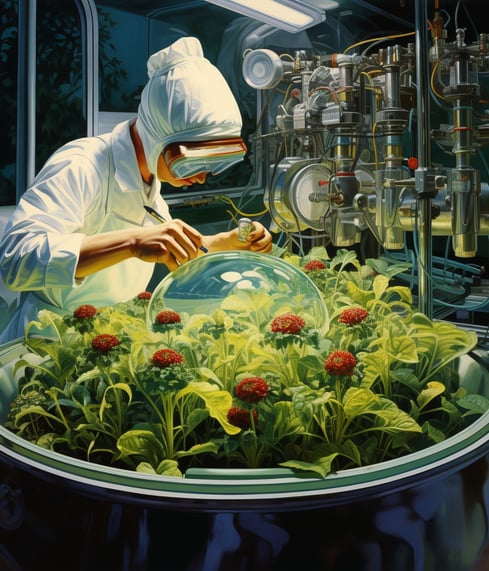

Biotechnology: A Powerful Tool for Healthcare
Biotechnology encompasses a broad range of scientific disciplines that utilize biological processes, organisms, or components thereof to develop innovative products and services. From developing life-saving medicines and therapies to addressing infectious diseases and improving diagnostics, biotechnology has revolutionized healthcare, offering hope for millions of patients worldwide.
IT: The Catalyst for Technological Advancement
The rapid advancements in information technology (IT) have had a profound impact on biotechnology, providing powerful tools and enabling the development of novel approaches and applications. IT has become an integral part of the biotechnology toolkit, driving innovation in areas such as:
Data Analysis: IT enables the collection, storage, and analysis of vast amounts of biological data, providing valuable insights into disease mechanisms, drug discovery, and personalized medicine.
Computational Modeling: IT-powered computational modeling allows scientists to simulate complex biological processes, predict protein structures, optimize drug design, and develop personalized treatment plans.
Robotic Automation: Robots are being used in biotechnology laboratories to automate tasks, increase efficiency, and improve reproducibility, particularly in high-throughput drug discovery and genomics.
Artificial Intelligence (AI): AI algorithms are being harnessed for tasks such as analyzing medical images, identifying patterns in patient data, and developing predictive models for disease progression and treatment outcomes.
Revolutionizing Healthcare: From Diagnosis to Treatment
The convergence of biotechnology and IT is driving innovation in healthcare across various aspects of patient care, from diagnosis to treatment and beyond. Here are some notable examples:
Personalized Medicine: IT is enabling the development of personalized medicine, where treatments are tailored to the individual patient's genetic makeup, lifestyle, and disease characteristics.
Gene Editing: CRISPR-Cas9, a revolutionary gene editing tool, is being used to develop gene therapies for treating genetic diseases, cancer, and other conditions.
Tissue Engineering: IT is facilitating the development of tissue engineering techniques to create replacement tissues and organs for transplantation.
Pharmaceutical Development: IT-powered drug discovery and development pipelines are accelerating the process of bringing new life-saving medications to patients.
Addressing Global Challenges: From Agriculture to Environmental Sustainability
The convergence of biotechnology and IT is also addressing critical global challenges beyond healthcare, including:
Improving Agricultural Productivity: IT is being used to develop high-yield crops, optimize agricultural practices, and combat pests and diseases, ensuring food security for a growing population.
Combating Infectious Diseases: IT-enabled surveillance systems are tracking the spread of infectious diseases, enabling early detection and intervention to prevent outbreaks.
Environmental Sustainability: Biotechnology is playing a role in developing sustainable solutions for waste management, renewable energy production, and environmental protection.
Ethical Considerations and Responsible Innovation
As biotechnology and IT continue to converge, it is crucial to address ethical considerations and ensure responsible innovation. This includes:
Data Privacy and Security: Protecting patient data and ensuring data governance is paramount to safeguarding patient privacy and preventing misuse.
Social Impact: Ensuring that biotechnology is accessible to all and that its benefits are equitably distributed across society.
Environmental Impact: Minimizing the environmental impact of biotechnology research and development.
Conclusion: A Transformative Partnership
The convergence of biotechnology and IT is a transformative partnership that is revolutionizing various industries and shaping the future of our world. From healthcare to agriculture, environmental sustainability, and beyond, these disciplines are combining forces to address global challenges and improve human health and well-being. As we move forward, it is essential to harness the power of this convergence responsibly, ensuring that innovation benefits all of humanity while safeguarding ethical principles and environmental considerations. The future holds immense promise, and the convergence of biotechnology and IT is poised to play a pivotal role in shaping a better world for generations to come.
Explore the Future of IT
